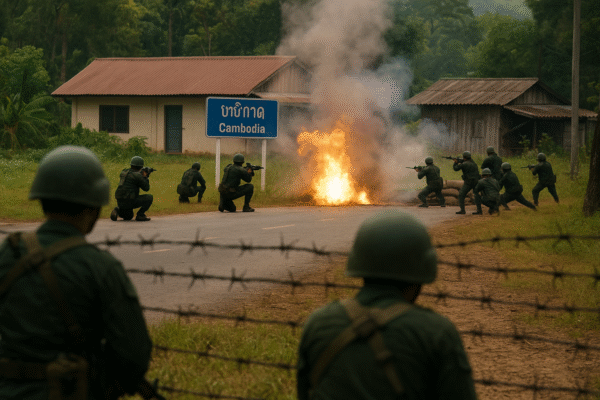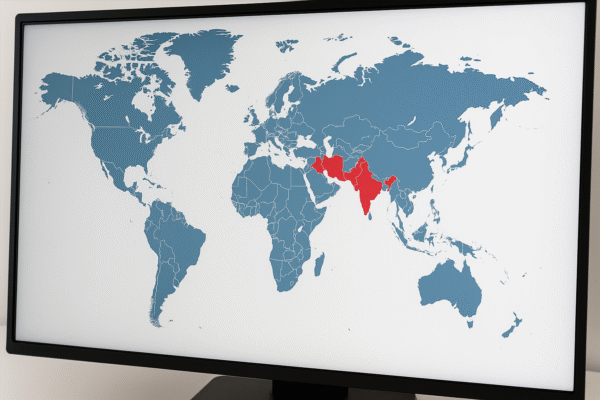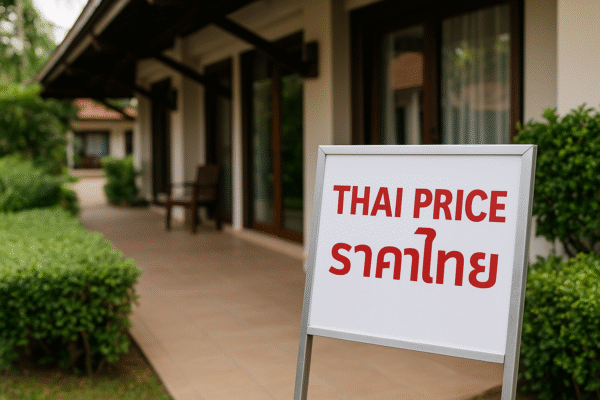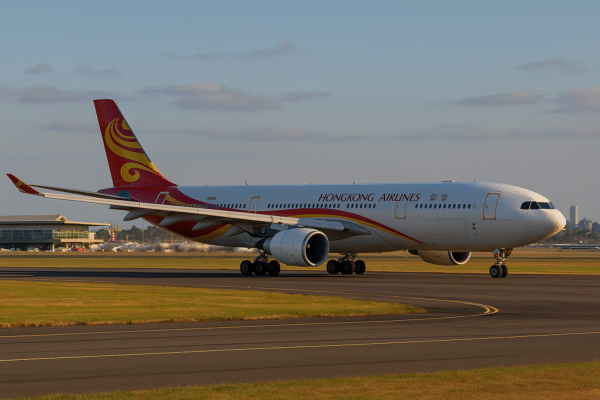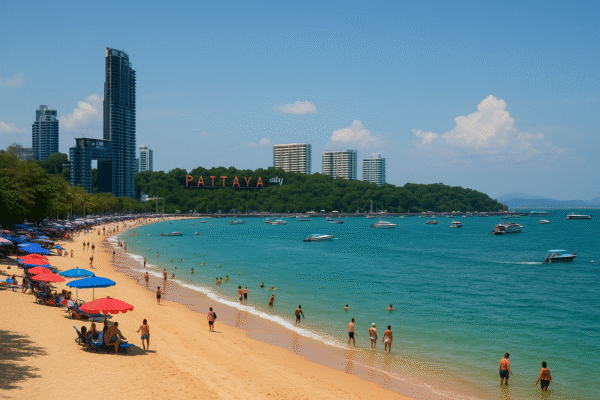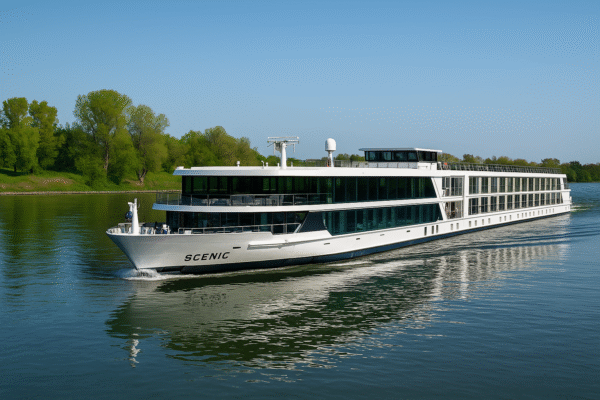Tourism at a Turning Point: How Pattaya and the World’s Top Beach Destinations Are Reinventing Travel
Across the globe’s most iconic beach destinations — from Pattaya and Phuket to Cancun, Barcelona, and Miami — the golden age of sun, sand, and unfettered growth is meeting a reckoning. A wave of structural challenges is forcing these cities to reassess the future of tourism. Affordability, safety, staffing shortages, and evolving traveler values are converging, prompting urgent conversations about how these destinations must evolve to survive and thrive.
Pattaya’s Pivotal Moment: High Costs, New Direction
Pattaya, long known for its nightlife and affordable entertainment, is seeing a significant shift in traveler sentiment. The once budget-friendly destination is now being criticized for rising entry fees at entertainment venues and soaring drink prices. “The bar model is no longer sustainable,” one longtime expat told Thai media. “People won’t come if they feel ripped off.”
This reflects a broader pricing issue affecting Thailand’s coastal hotspots. In Phuket, tourists have raised concerns over exorbitant taxi fares, while in Goa, India, beach shack operators fear that rapid commercialization and unchecked development are alienating budget travelers who once fueled their success.
Safety First: A New Priority for Tourists
Security concerns are compounding the cost problem. In Pattaya, there have been mounting reports of crimes targeting foreigners, from scams to assaults. In response, Thai authorities have announced “safe zones” across Pattaya, Chiang Mai, and Phuket, backed by expanded CCTV coverage and increased police patrols.
These issues are not unique to Thailand. In Barcelona and Nice, local governments have escalated efforts to curb pickpocketing and petty crime in tourist-heavy areas. In Rio and Miami, security initiatives are being upgraded to reassure visitors. A growing consensus is clear: affordability matters, but feeling unsafe is a dealbreaker.
Labor Shortages Disrupt Hospitality Standards
The aftermath of the COVID-19 pandemic continues to haunt the tourism workforce. Many skilled workers in hospitality have not returned, leaving hotels, bars, and tour operators short-staffed. In Pattaya and Phuket, some establishments rely on undocumented workers, raising concerns about worker rights and quality control.
The issue spans continents. In Cancun and Cebu, resorts and dive operators are operating below capacity. “We’ve had to reduce our group tours,” said a Cebu-based eco-tour guide. “There just aren’t enough trained people.”
This disruption extends beyond hotels and restaurants. Cultural workshops, local excursions, and wellness programs — hallmarks of authentic travel — are also at risk without experienced guides and facilitators.
Currency Fluctuations: Strong Baht, Weaker Value
Thailand’s strong baht has also been a burden on its tourism competitiveness. European, Japanese, and Australian tourists find their holiday budgets stretched thinner in Pattaya and Phuket. By contrast, destinations like Sihanoukville in Cambodia and Boracay in the Philippines, where the U.S. dollar stretches further, are attracting more price-conscious travelers.
However, these lower-cost locales are not immune to inflation. Reports of inflated food prices, excessive service charges, and weak infrastructure have led to complaints about value, even in traditionally budget-friendly destinations.
A New Generation of Tourists, New Expectations
Today’s travelers are increasingly focused on meaningful, sustainable experiences. While beach parties and nightlife remain popular, many visitors are now seeking wellness, cultural immersion, and eco-conscious activities.
In Goa, yoga retreats and heritage homestays are thriving. Cebu’s tour operators are pivoting toward marine conservation tours. In Bali, local authorities have launched community-led sustainability campaigns to protect natural and cultural heritage from overtourism.
Pattaya, too, has begun to highlight its lesser-known assets — including family attractions, temples, and coastal scenery — to diversify its image beyond nightlife.
Real Voices, Real Change
On Jomtien Beach, a local café owner has abandoned the party crowd and now serves healthy brunches and live acoustic sets. Her new clientele? Digital nomads, families, and older travelers.
In Barcelona, hostel owners are converting dorm rooms into co-living spaces for long-stay remote workers. Meanwhile, in Cebu, diving instructors are now focusing on educational tours for school groups and cruise passengers.
These micro-shifts signal a macro-trend: destinations are finding ways to balance experience and sustainability, short-term revenue and long-term resilience.
Government Response: From Infrastructure to Incentives
Thailand’s Ministry of Tourism is proactively addressing these challenges. New initiatives include:
- Safe Zones in key cities
- Tax breaks and relief packages for licensed hotels and tour operators
- Expanded visa exemptions for select markets
- Infrastructure investments, such as the Eastern Economic Corridor’s high-speed rail linking Bangkok to Pattaya and U-Tapao airport modernization
- Wastewater system renewal in Pattaya to support environmental health
Elsewhere, the Philippines’ Department of Tourism continues its Boracay rehabilitation push, along with coastal cleanup and sustainable waste management campaigns in Cebu. In India, Goa’s government is offering grants to eco-tourism and cultural tourism entrepreneurs.
These efforts reflect a growing understanding that tourism must be more than a numbers game — it must enhance quality of life for residents while offering authentic, safe, and sustainable experiences for visitors.
Reinventing the Soul of the Beach
From Cancun to Cebu, the beach is no longer just a playground — it’s a proving ground. Climate change, overcrowding, and shifting global economics are testing whether beloved destinations can adapt without losing their essence.
For Pattaya, the path forward may lie in balance: retaining its legendary spirit while embracing a broader, more inclusive identity. As one expat said, “The sparkle may fade, but if we preserve the soul, we can shine even brighter.”
For more travel news like this, keep reading Global Travel Wire





